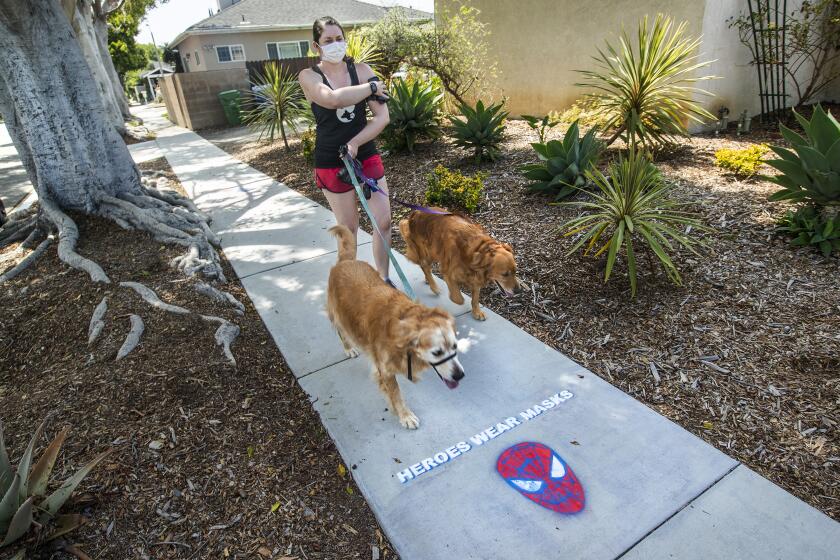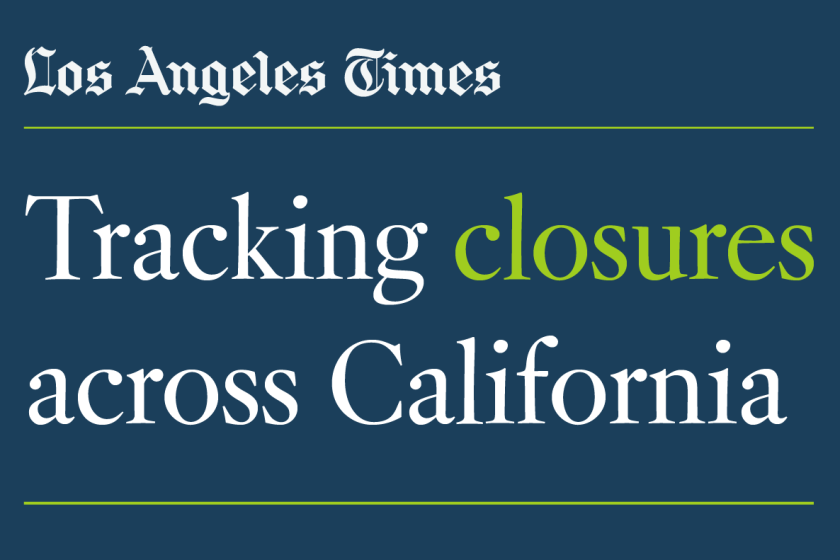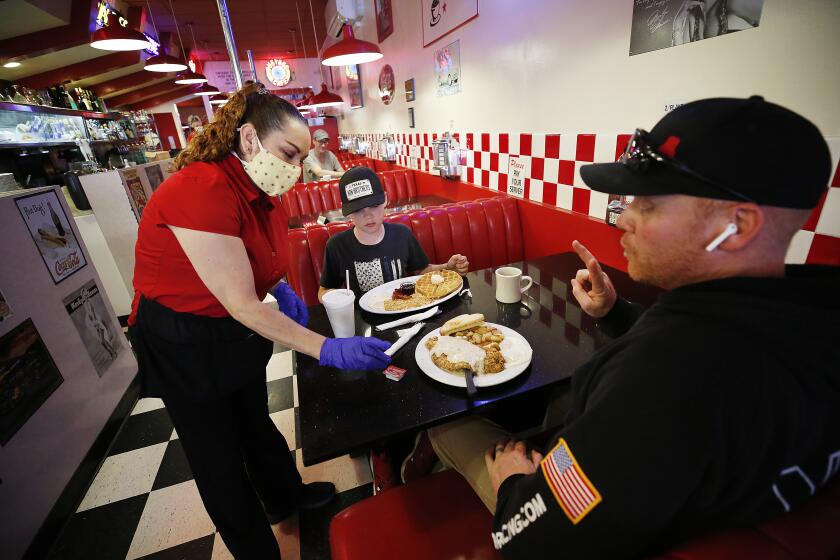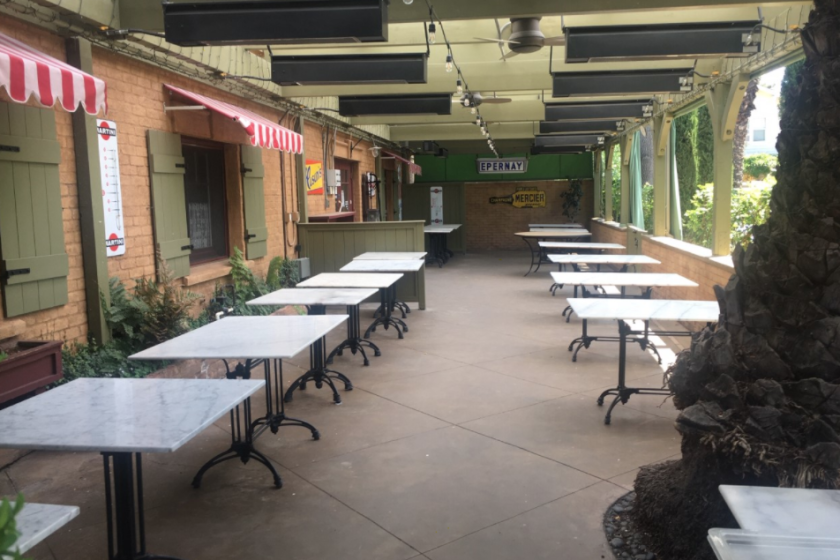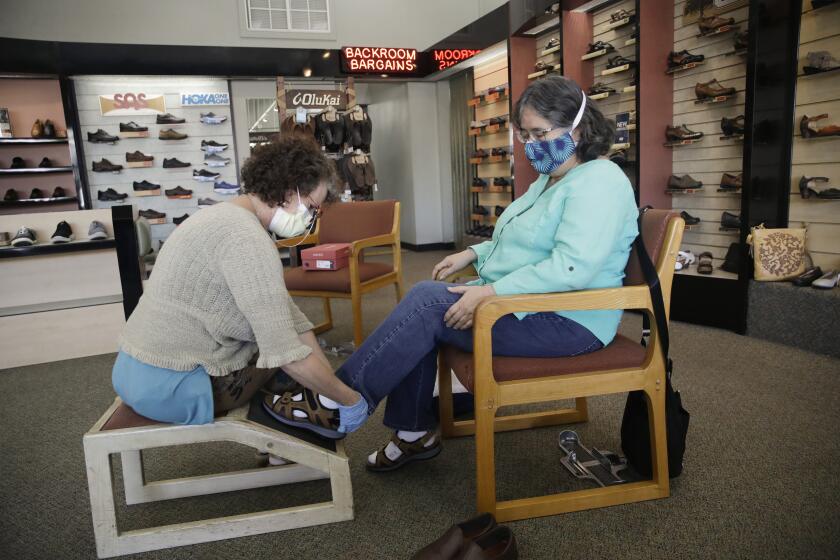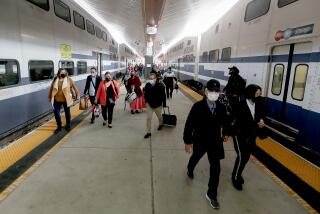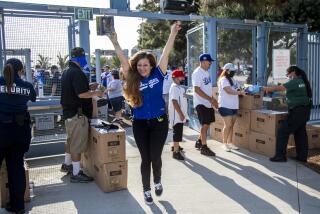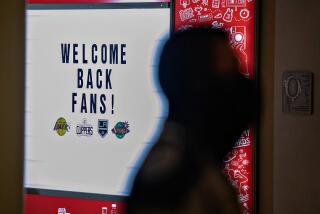L.A. County surpasses 2,000 coronavirus deaths: ‘A very sad milestone’
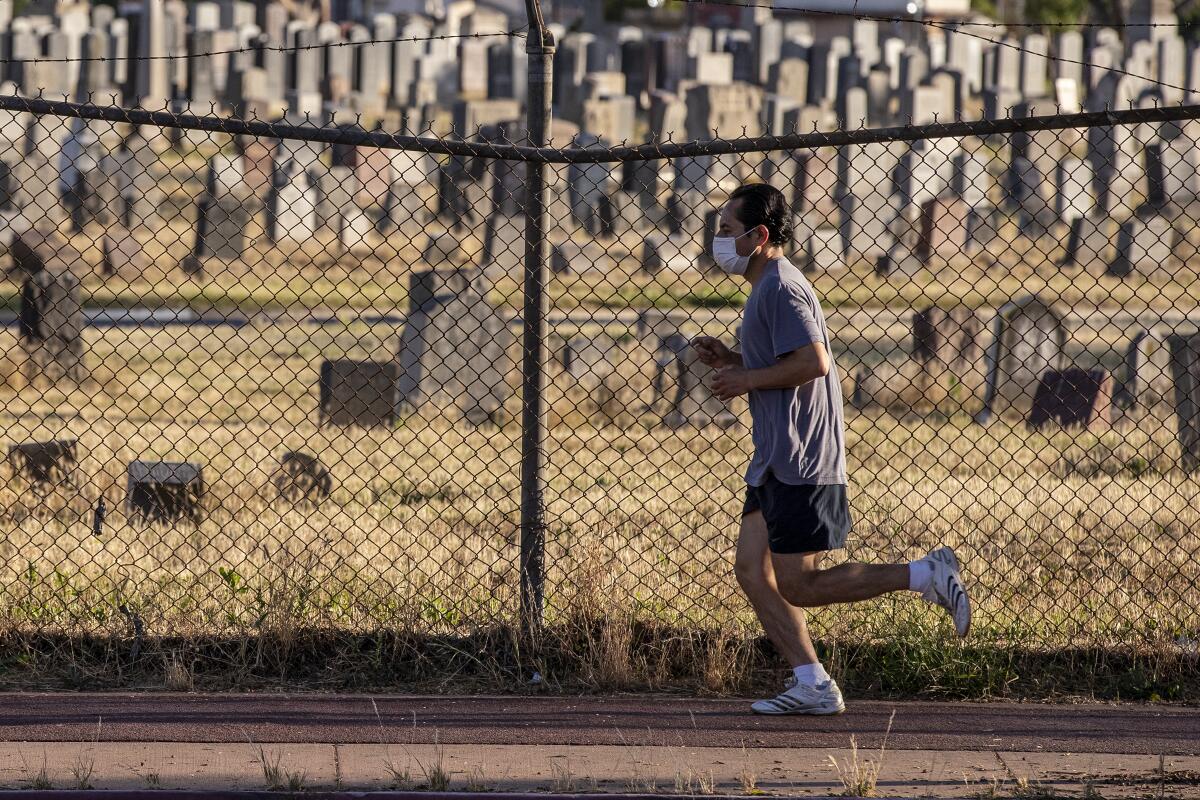
Los Angeles County health officials announced 46 new coronavirus-linked fatalities Thursday, pushing the region’s death toll past 2,000.
“This is a very sad milestone for us,” county Public Health Director Barbara Ferrer said during a daily briefing.
Along with the updated death count — which now stands at 2,016, according to The Times’ coronavirus tracker — Ferrer announced an additional 1,204 confirmed infections, pushing the county’s total past 42,000.
L.A. County remains the hotbed of coronavirus activity in the Golden State. California’s most populous county accounts for nearly 60% of the state’s total death toll and almost half of the more than 86,000 infections that have been confirmed statewide.
Overall, 52% of those who have died in the county lived in an institutional setting, Ferrer said. The vast majority of those people were residents of skilled-nursing facilities, she added.
Deaths have topped 3,500 across California, even as officials move to further reopen the state’s economy.
The sobering statistic illustrates that although this week has seen glints of optimism that the state is turning the tide in its fight against COVID-19, the disease is still here, and the danger is still real.
California recorded 132 new coronavirus-related fatalities Tuesday — the most in a single day since the pandemic began.
Despite the magnitude of its caseload, the county is making progress. Its transmission rate recently hit the lowest level seen since the coronavirus outbreak began to mushroom in March.
Ferrer also said the county has seen a 12% decrease in its latest seven-day average of deaths per day, as well as a 15% decrease in its most recent three-day average for hospitalizations per day.
“The progress we’ve made in slowing the spread, the reduction in the average daily deaths and hospitalizations and retaining capacity in our healthcare system — this lets us know that the extraordinary efforts and sacrifices made by all of you are working,” she said. “As a community, we’ve done this together, and this progress is a direct reflection of what all of you in your day-to-day lives have been able to accomplish.”
An increasing downturn in the daily number of new cases suggests the transmission number is slightly under 1, a milestone for L.A. County.
Amid that progress, Los Angeles County has begun to relax some of its coronavirus restrictions, but the county doesn’t meet the state’s criteria for a wider reopening.
Despite this, Supervisor Janice Hahn is calling for Gov. Gavin Newsom to allow all retail businesses across the state to open, provided they meet the same public health protocols — including limiting capacity, and requiring face coverings for employees and customers as well as physical distancing.
Doing so, she said Thursday, would help level the playing field between retailers that had to close because of coronavirus restrictions and larger ones such as Walmart, Costco and Target that have been allowed to stay open throughout the pandemic.
“What seemed to be a necessary measure at the early onset of this crisis has unintentionally created winners and losers in this ‘pandemic economy,’ with large retail businesses able to operate, while small retail businesses are struggling and limited to curbside pickup,” Hahn said in a statement. “This needs to change.”
But during the county’s daily update, Supervisor Hilda Solis urged caution. “It looks like we are improving. I wish that we could speed things up,” she said. But she warned that economic recovery can’t come at the expense of more lives.
“Let’s be frank: The economic crisis for communities of color predates COVID-19,” Solis said. “COVID-19 has magnified that reality.”
Since “the virus is still out there waiting for us to let our guard down,” she said, it’s vital to keep measures and rules in place to make sure business is conducted safely.
To contain the spread of COVID-19, parks, restaurants and stores are slowly reopening.
Of those who have tested positive for COVID-19 in the county, Ferrer said, 76% were between the ages of 18 and 65 — and “this is the age group that makes up the majority of our workforce.”
“So, as more people are going back to work, it’s an important reminder that people at the workplace may be infected even if they aren’t feeling sick,” she said.
Much of California has progressed to a point where officials feel it’s safe to further lift portions of the state’s stay-at-home order and allow more businesses to reopen.
The number of newly identified coronavirus cases across the state declined from the previous week, and hospitalizations have dropped more than 15% from a peak six weeks ago, according to a Times analysis.
As of Thursday morning, 40 of California’s 58 counties had received approval to progress more quickly through Phase 2 of the state’s reopening road map — meaning they can open restaurant dining rooms and more retail businesses for in-store shopping.
Ventura and San Diego counties are among the latest to get state approval to push through Phase 2. Orange County hasn’t been given the green light yet, and L.A. County doesn’t meet the criteria.
The list of counties that can ramp up their reopening efforts now includes San Diego — the state’s second-most populous — Kern, San Luis Obispo, Santa Barbara and Ventura.
Officials emphasize, however, that residents and businesses still need to take steps to prevent transmission of the virus.
“These businesses are required to follow detailed guidelines from the state to protect the health of employees and customers,” San Luis Obispo officials wrote on the county’s Facebook page. “We all need to continue taking precautions to keep our community safe, like washing hands frequently, staying home if sick and maintaining 6 feet of distance from others when out in public.”
What remains to be seen is whether customers will come back.
Just because patrons can return doesn’t mean they are comfortable doing so, especially as businesses still must meet adhere to the physical-distancing and sanitation requirements and other measures.
California is reopening, but anxious customers are slow to come back
Still, a return to normal is undoubtedly an allure for some.
“The feedback from our shoppers is that they are very excited to get back to a sense of normalcy,” said Natasha Shelton, the senior general manager for the Chico Mall in Butte County and the Yuba Sutter Mall in Yuba City. “They are treating themselves to a nice set of shoes or some other item they’ve been used to, to boost their mood. This is something they treasured before, and they’re treasuring it even more now.”
Even though the state recently relaxed its reopening rules — which made it possible for more-populated urban counties to qualify — some counties have pushed to go further.
The Tulare County Board of Supervisors voted this week to move all the way through Phase 3, which would allow in-person religious services to resume and movie theaters, shopping malls, salons, gyms and dine-in restaurants to reopen.
The Tulare County Board of Supervisors voted to push the county all the way through Phase 3 of California’s reopening road map.
“This is going to be one of those events that changes our lives forever,” Tulare County Supervisor Kuyler Crocker said Wednesday. “Business is not going to be done in same way. But that doesn’t mean we can’t do business.”
For those caught between what the state allows and what local governments permit, the question of whether to open is challenging.
“It’s a very tough situation,” said Shelby Massey, the owner of Studio 622 Salon & Spa in Yuba City. “I have pressure from people wanting to go back to work, clients wanting to come in and see their stylists, and state officials and the licensing board to stay closed.”
Times staff writer James Rainey contributed to this report.
More to Read
Sign up for Essential California
The most important California stories and recommendations in your inbox every morning.
You may occasionally receive promotional content from the Los Angeles Times.
